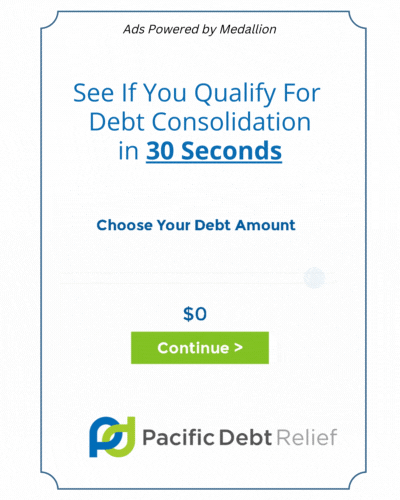Debt consolidation is the process of combining multiple debts into one. This makes it easier to manage your money and can reduce the overall amount of interest that you pay.
- You take out a new loan or use a balance transfer credit card.
- The new loan or credit card is used to pay off all your existing debts, such as credit cards, personal loans, and other high-interest debts.
Historical Context and Evolution
Debt consolidation has been around for many years as a strategy to help people manage their finances.
- In the past, people mostly used personal loans to consolidate their debts.
- Today, there are more options, such as balance transfer credit cards and even home equity loans.
Key Benefits
There are many advantages to consolidating your debts.
- Lower Interest Rates: You can save money by paying less interest over time.
- Simplified Repayment: With only one monthly payment to make, it’s easier to keep track of your finances.
- Improved Credit Scores: When you pay off your debts regularly and on time, your credit score can improve.
Debt consolidation can be a useful tool for those who want to manage their debts more effectively. For more detailed information on how debt consolidation works, you can visit trusted financial websites like Pacificdebt.com.

How Does Debt Consolidation Work?
Combining Debts
- New Loan or Credit Card: You start by getting a new loan or credit card.
- This loan or credit card is used to pay off all your existing debts.
- Settling Existing Debts: The money from the new loan or credit card is used to pay off your current debts.
- Once paid, your old balances are gone, and you only have one new debt to manage.
Single Monthly Payment
- Simplified Payments: Debt consolidation means making just one monthly payment instead of many.
- This helps reduce the chance of missing a payment.
- It also makes keeping track of your funds much easier.
- Payment Management: Taking care of a single payment, each month frees up time and reduces stress.
- All you need is to remember one bill and one payment date.
Fixed Repayment Terms
- Set Interest Rates: Debt consolidation loans usually have fixed interest rates.
- This means your interest rate will not change throughout the loan term.
- Fixed rates provide stability and make it easier to plan your budget.
- Clear Payoff Schedule: These loans come with set repayment terms.
- Terms typically range from one to seven years.
- Knowing how long it will take to pay off your debt helps you set goals and stay motivated.
Debt consolidation works by helping you manage multiple debts through a single, easy-to-understand loan.

Types of Debt Consolidation
Debt Consolidation Loans
- Unsecured Personal Loans: These loans don’t require you to put up any collateral.
- They have fixed interest rates, meaning the rate stays the same over the life of the loan.
- Repayment terms are set, so you’ll know exactly when the loan will be paid off, typically in 1 to 5 years.
- Consolidating Unsecured Debts: You can use these loans to pay off credit cards, medical bills, or other personal loans.
- This helps you manage your debt more easily with one monthly payment.
Balance Transfer Credit Cards
- 0% Interest Promotional Period: Some credit cards offer a promotional period with 0% interest for a set time, often 12-18 months.
- You transfer your existing credit card balances to this new card.
- During the promotional period, you pay no interest, letting you save money and pay off debt faster.
- Potential Savings: If you manage to pay off your debt within the promotional period, you avoid interest charges completely.
- This could mean significant savings if you had high-interest rates on your old cards.
Home Equity Loans
- Secured by Home Equity: These loans use the equity in your home as collateral.
- Equity is the difference between your home’s value and what you owe on your mortgage.
- Risks and Benefits:
- Benefits: Lower interest rates compared to other types of loans because they are secured.
- Potentially large loan amounts based on your home equity.
- Can be used to pay off high-interest debts, reducing your overall interest costs.
- Risks: If you fail to repay the loan, you risk losing your home.
- This makes it a riskier option than unsecured loans.
- Benefits: Lower interest rates compared to other types of loans because they are secured.
There are several types of debt consolidation options available, each with its own benefits and risks.

Managing and Evaluating Debt Consolidation
Steps to Get a Debt Consolidation Loan
Getting a debt consolidation loan involves several steps to make sure you make the best decision for your finances.
- Check Your Credit Score
- Checking your credit score is the first step. A good credit score can help you get a lower interest rate on your loan.
- List Your Debts
- Make a list of all the debts you want to consolidate. Write down the total amount you owe and the interest rates for each debt.
- Compare Loan Options
- Look at different loans from various lenders like banks, credit unions, and online lenders. Compare their interest rates and terms.
- Apply for the Loan
- Once you find a loan that fits your needs, you can apply for it. The lender will need proof of your income, identity, and other details. Be sure to read the loan terms carefully.
- Close the Loan
- If your application is approved, the lender will pay off your existing debts with the new loan. Now you only have to make one monthly payment to the new lender.
Pros and Cons of Debt Consolidation
Debt consolidation has its advantages and disadvantages. It’s important to weigh both before deciding.
- Pros
- Streamlined Finances: Combining multiple debts into one makes it easier to manage your money.
- Potential Savings: Lower interest rates can save you money over time.
- Fixed Interest Rates: You know exactly how much you need to pay each month, making it easier to budget.
- Improved Credit Score: Regular payments can improve your credit score over time.
- Cons
- Risk of New Debt: You might be tempted to take on new debt after consolidating your old debts.
- Upfront Fees: Some loans come with fees that can add to your costs.
- Credit Checks: Applying for a new loan requires a credit check, which can lower your credit score temporarily.
- Potential for More Debt: If you don’t control your spending, you might end up with more debt than before.
Managing a Debt Consolidation Loan
Properly managing your debt consolidation loan is crucial to maximizing its benefits.
- Avoid Additional Debt: Don’t take on new debt while paying off your consolidation loan. Stick to a budget and avoid unnecessary expenses.
- Stay on Top of Payments: Always make your monthly payments on time. Setting up automatic payments can help you avoid missing any.
- Take Advantage of Rate Discounts: Some lenders offer discounts if you set up automatic payments. Look into this to save more money.
Managing debt consolidation loans effectively can lead to financial freedom.



